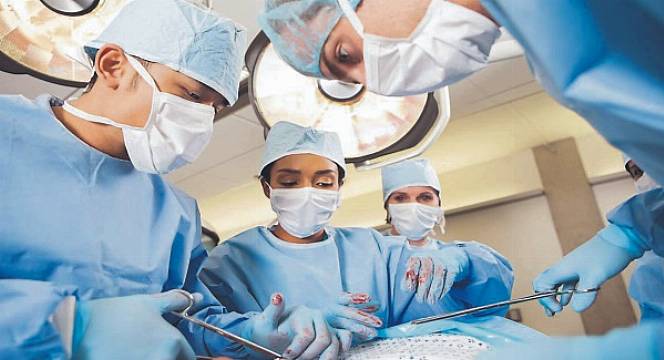The sleep deprivation of surgeons in Ireland is negatively affecting their surgical performance, according to a new study from Trinity College Dublin (TCD).
The research from TCD’s School of Medicine found that surgeons were already sleep deprived before their on-call shifts and were even more sleep deprived afterwards.
The study, the first of its kind to focus on Irish surgeons, is published in the Journal of Surgical Research.
It focused on the effects of being ‘on-call’ — a frequent state for surgeons it said, with highly-skilled professionals frequently working 24 straight hours or more — and recruited surgical trainees and consultants in the Dublin region.
Lead researcher Dale Whelehan, a PhD researcher in Behaviour Science at the School of Medicine, said the current work situation of surgeons in Ireland requires “urgent attention”.
Sleep deprived before work
“The findings of this study tell us that current provision of on-call models preclude the opportunity for surgeons to get enough rest,” he said.
“Similarly, surgeons are sleep deprived before going on-call which further perpetuates the issue.
“The implications for performance suggest aspects of surgeons' performance is diminished, particularly tasks which might be more cognitively demanding.”
Dr Whelehan said that optimising the performance of surgeons would require considering how “current models of on-call influence sleep levels in healthcare staff, and how it creates barriers to fatigue management in staff.”
“Policymakers must ensure appropriate work-life balance legislation is in place with appropriate resourcing [and] institutions must enforce this legislation,” he said.
“Regulation and resourcing must go hand-in-hand... this is about building a system that better supports healthcare workers to work to their best ability by getting sufficient recovery and rest.”
Findings
In the study, the ‘sleep latency’ of participants, referring to the time it takes to go from being fully awake to sleeping and often an indicator of sleepiness, was objectively measured using electroencephalogram (EEG) and a validated modified Multiple Sleep Latency Test.
The surgeons in the study all had early onset sleep latency before going on-call, which was worsened in post-call settings.
The study found the surgeons had poor baseline sleep quality and were objectively sleep deprived, even pre-call, when they should be in a ‘rested state’.
As sleep deprivation increased, diminished performance was identified in cognitive tasks and surgical tasks with greater cognitive components.
We need to learn from our colleagues in aviation who have mandatory rest periods before flights
Technical skill performance was "relatively preserved" in acutely sleep-deprived states, and the study authors said this may be influenced by learning curve effects and experience in surgical tasks.
The technical performance of surgeons was assessed using a validated surgical simulator, and cognitive performance was measured using a Psychomotor Vigilance Task (PVT) to assess objective alertness and reaction time.
Professor Paul Ridgway, of TCD’s Department of Surgery who supervised the study, said: “Our study is further evidence that the way we deliver emergency work alongside normal work in Ireland has to change.
“We need to learn from our colleagues in aviation who have mandatory rest periods before flights.”







